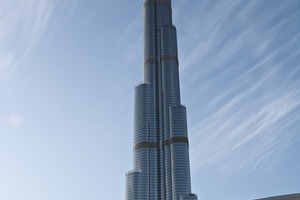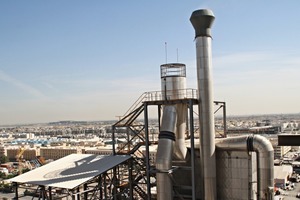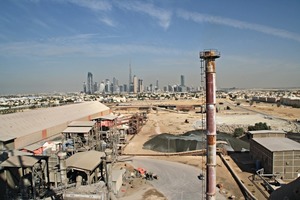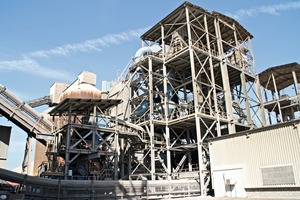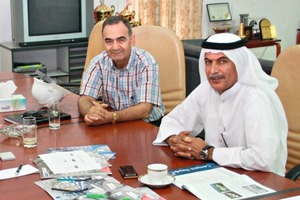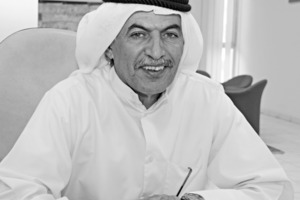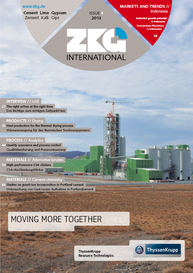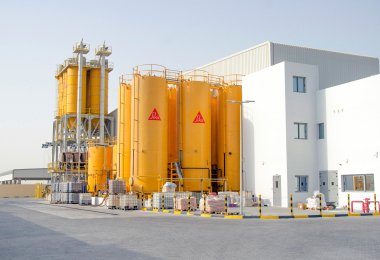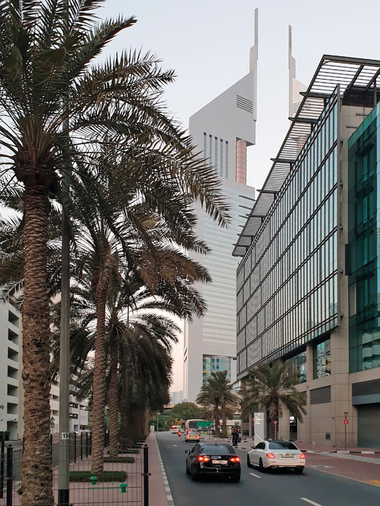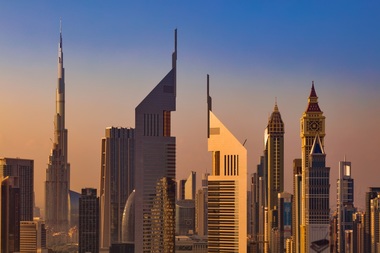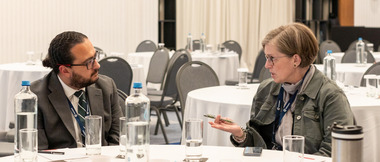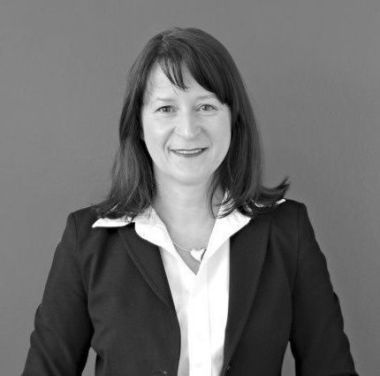The National Cement Co. (NCC) was established in 1978 under the guidance of the late ruler of Dubai H. H. Sheikh Rashid Bin Saeed al Maktoum. It was his vision to create new avenues for industry using local resources and local raw materials. Accordingly, National Cement was set up to produce the basic material to fuel the anticipated construction boom in the UAE and the region. National Cement primarily serves the UAE and GCC markets with an array of branded cement products. The Burj Khalifa has been built with material from the plant and NCC also supplied the material for many other projects. First built in the desert, nowadays the plant lies in the city area of the rapidly growing Dubai, between Burj Khalifa and Dubai Marina. ZKG INTERNATIONAL spoke with the General Manager, Mr. Mohammed Al-Ghurair, about the cement business and about sustainability and its different disciplines.
ZKG: Mr Al-Ghurair, what is the current status of the cement business in the UAE?
M. Al-Ghurair: The cement business is a cyclical business. Currently we have a boom in Saudi Arabia while the economy is declining in the UAE. We can not do anything to change the economy in general. But we can adjust to the situation. If we know our customers, we can assess their needs and, thus, find additional products or services. That means, you are not simply selling the material to a ready-mix plant, but you approach the end user, see what he thinks about the ready mix and what his requirements are. In doing so, you can respond quickly to the market.
ZKG: How important is sustainability in the cement business of the UAE?
M. Al-Ghurair: Sustainability is a key factor in our business and has many aspects. The first aspect is related to the owner. For the customers it is important that a company claims: “I stand for quality services, I support my customers”. Sustainability also means stability in the ownership of a company. If the owners keep changing, it can be a problem. An important aspect concerns the community. You have to ask yourself: “Am I contributing to the community or not? Do I have a good image?” If a company creates employment, recycles wastes and so on, it interacts with the community and, thus, becomes part of it. Then you are a friend and not an enemy of the community. Yet another aspect is competition. Of course you need to know your competitors. Always being a step ahead is essential. You can achieve this only when you consider your own abilities and try to improve them.
To achieve sustainable development it is necessary to continuously develop your own business. When you start producing cement, a suitable approach might be to see which side businesses are possible, e.g. aggregates. If you don’t have a waste heat recovery system, you need to consider obtaining this. Of course it is not enough to copy your competitors. Then you are already behind. You need to create something new, to be one step ahead! A good way can be to take advantage of by-products, i.e. to create a new product with them. In this case you don’t need to buy material; you are simply transferring it from one point to the other. Maintenance is a crucial aspect too. Today a huge variety of tools exist to determine problems at an early stage. Don’t wait until it is too late! You also need to activate your staff, i.e. to make them feel part of the plant. It is necessary to overcome the barrier, make the plant part of the people’s life. You can only achieve this as a manager, when you go out and speak with the employees. I always meet my personnel, and I am open for the suggestions, questions and needs, and of course I know almost every nut and bolt in my plant.
ZKG: How do you encourage the employees to create new ideas, to think about new perspectives of preventive maintenance etc.?
M. Al-Ghurair: The management has to motivate the people to have new ideas. We have seminars here on different topics, to stimulate thinking about a specific aspect, and at the end there should be a reward when a good solution has been found. However, a reward does not necessarily mean money, it can also be acknowledgement and appreciation. Finally, of course, money often becomes a part of it. Requesting answers and opinions, and allowing the people to express their opinions is also part of the success. When considering this, we come back to the economic cycles. When you are at the peak there is very limited possibility for creativity. Getting the material out of the plant as efficiently as possible is the objective. A creative situation is best possible in the downturn of an economic cycle. The final aspect of course is always improvement. It is always necessary to increase the benefit and minimize the risk.
ZKG: What would be the special company policy of NCC?
M. Al-Ghurair: We always try to improve ourselves, we don’t look too much outside but we continuously try to optimize our processes. We always try to push our dynamic further. Just one example: We obtained foundry material from outside. An engineer suggested using the local foundry instead. The advantages are that we quickly receive the material and we don’t have to have material in stock, because delivery times are short. A simple solution, but efficient! Yet another example: At first we co-ground slag and cement, but then we carried out an investigation and discovered that separate grinding is the more efficient way. At first the end users were sceptical. However, we finally convinced them of the benefit and the new solution was accepted. Nowadays, the carbon footprint will always be part of the situation. We do need to think more about materials cycles, and we have to interact with different industries and establish which by-products may be used in cement production. This means a benefit for both businesses. Alternative fuels are another example. There is a lot of potential for improvement here, but sometimes it takes time. If you compare the long history of the cement industry in Europe with that in the Emirates, you will see a mature market for Europe and a developing market here. Maturity takes time, and if you start too early, a good idea might be rejected just because it is not yet the right time. If you make the proposal at the right time, it can be easily accepted. WHR was forbidden here, because the government wanted to sell the power from power plants. Due to a gas shortage then companies were allowed to proceed in that direction. At present the authorities are not promoting the idea of collecting waste, but they may in the future. Then it is necessary to be prepared.
ZKG: What is the current status of the economy in the UAE, at which part of the cycle are we?
M. Al-Ghurair: We are on the way down and I assume we will go down further. There was an increase in building activities in the past, now is the time to assimilate this. Once settled, an upturn can occur again. The correct action at the correct time is the secret, and I already discussed this 20 years ago. Nobody believed me at that time, but nowadays it has become obvious. For this region, one business cycle is about seven years, and it was the same 20 years ago. Of course you can think anti-cyclic, i.e. finding a new or associated business that has the opposite dynamic. From my point of view, 2015 may be the time when the economy improves again. For now it is the time for sustainable action. We have a number of options for the future, alternative fuels, waste heat recovery, alternative raw materials. Similar to a Beduin: You can bring him to the desert, he instantly reads the environment, discovers where he is and in which direction he should go. It is the time for us to understand our environment, read the signs and take the right actions.
ZKG: Thanks for the interview.

